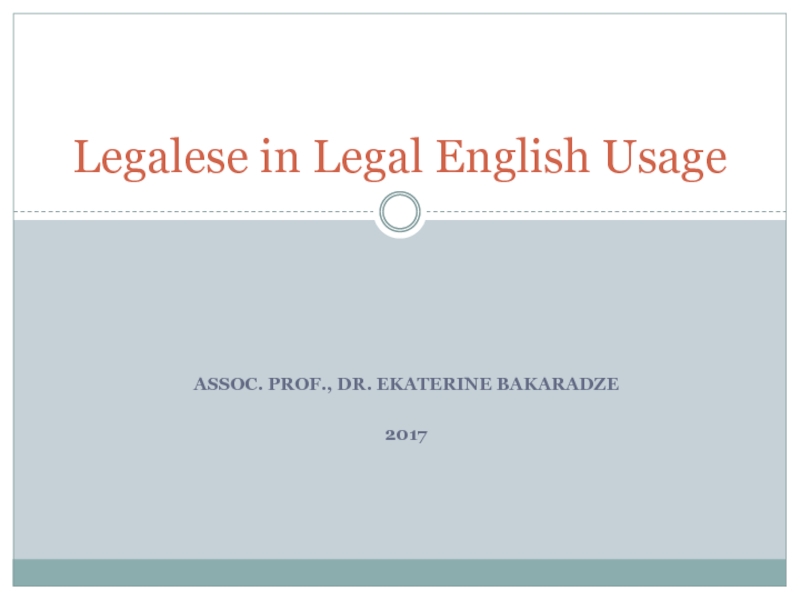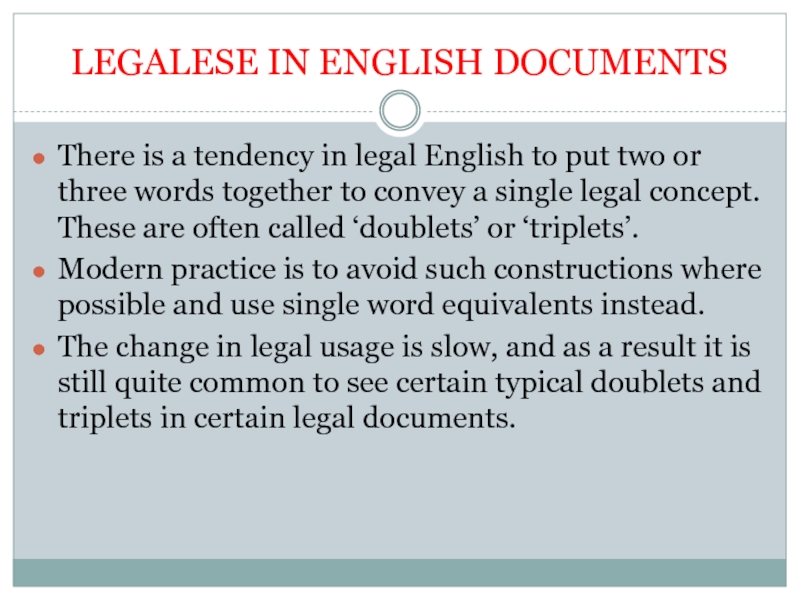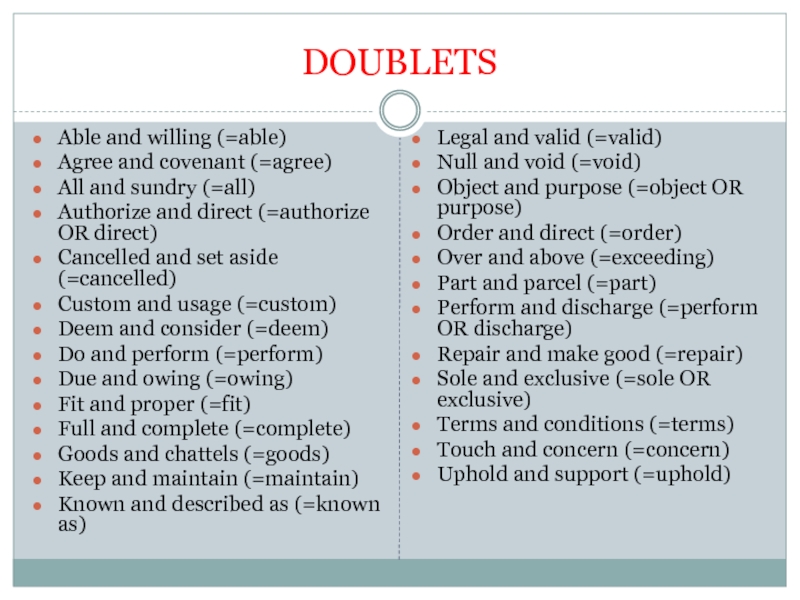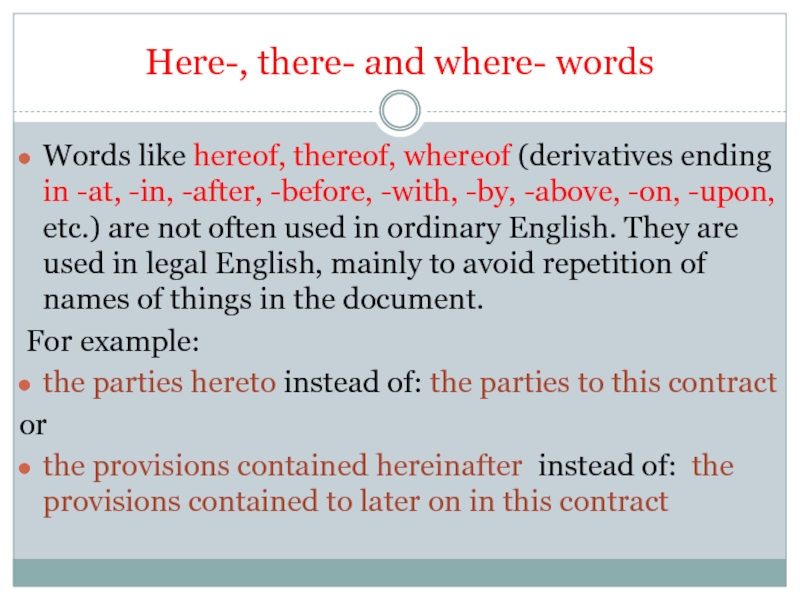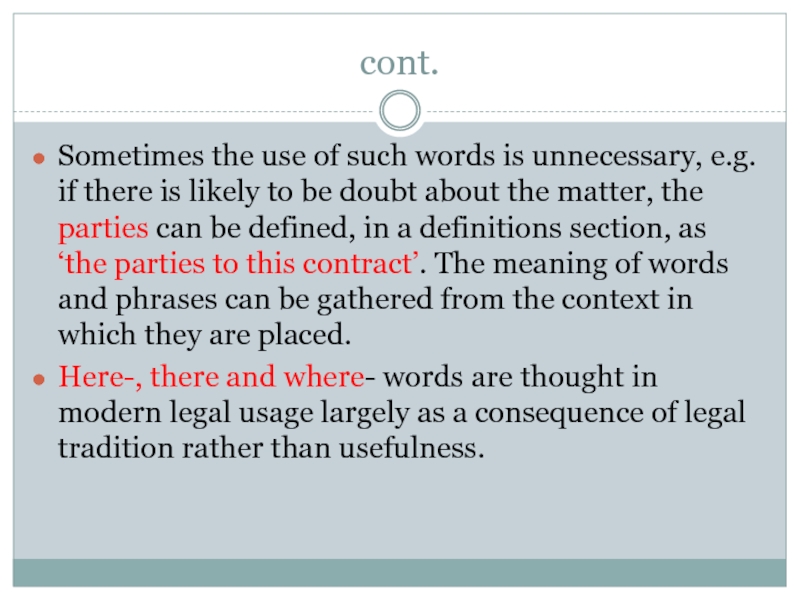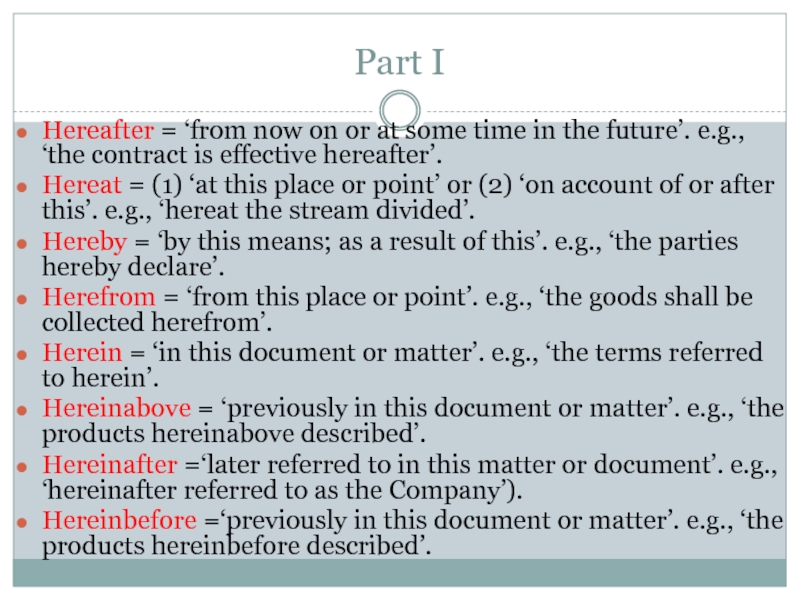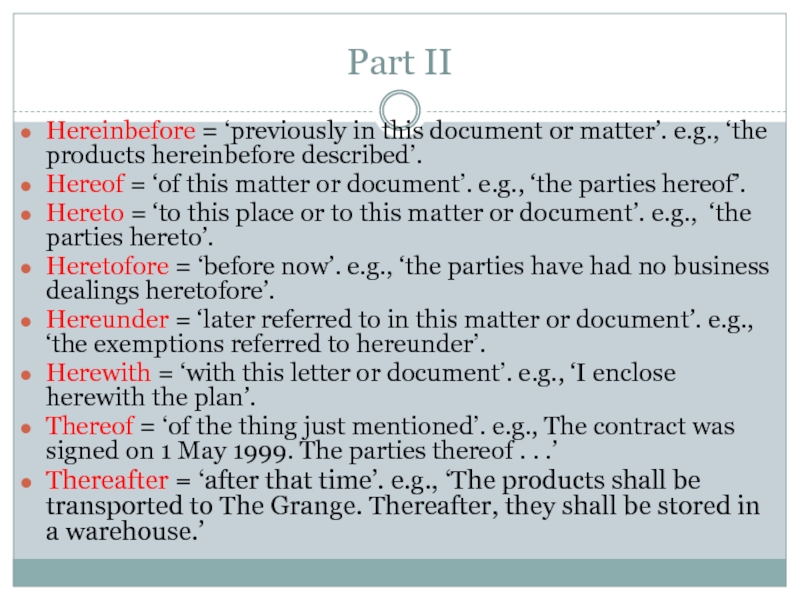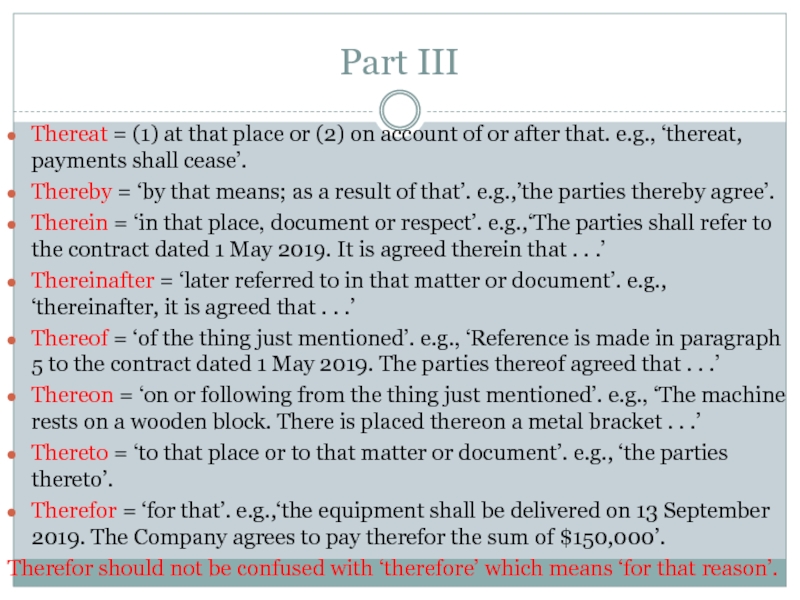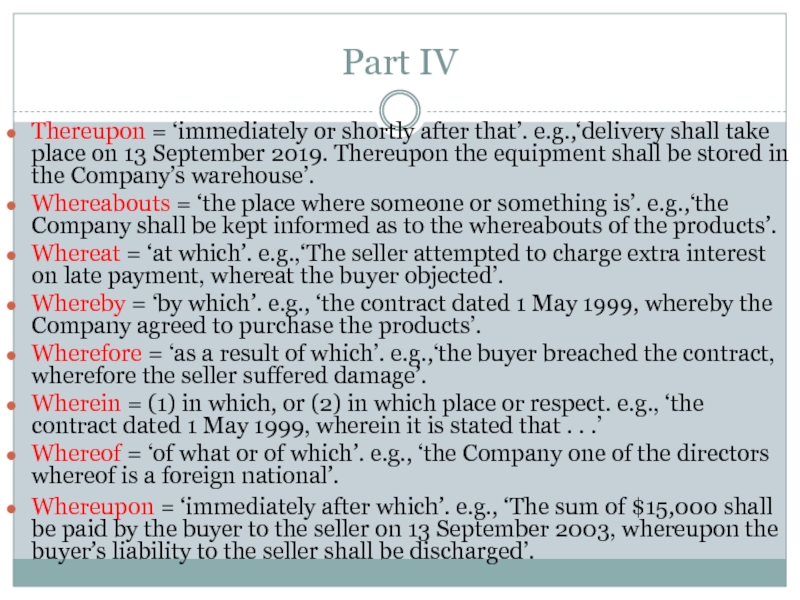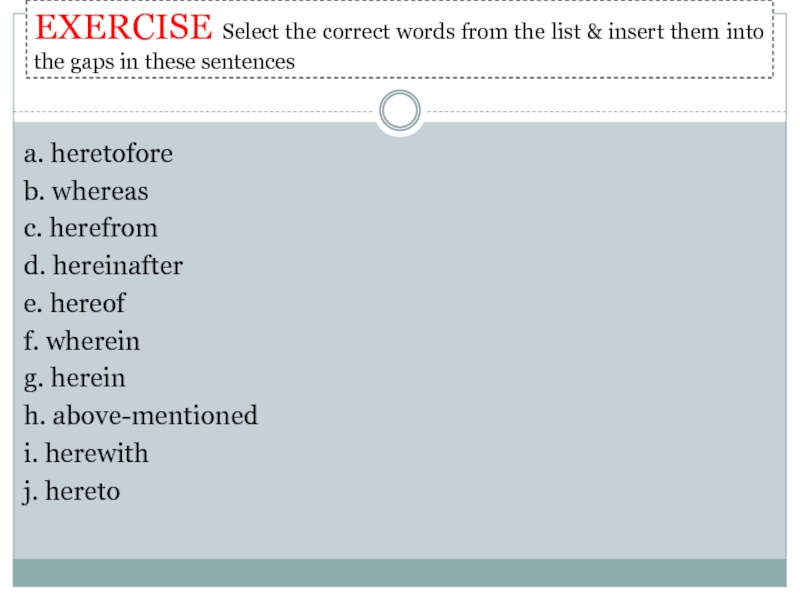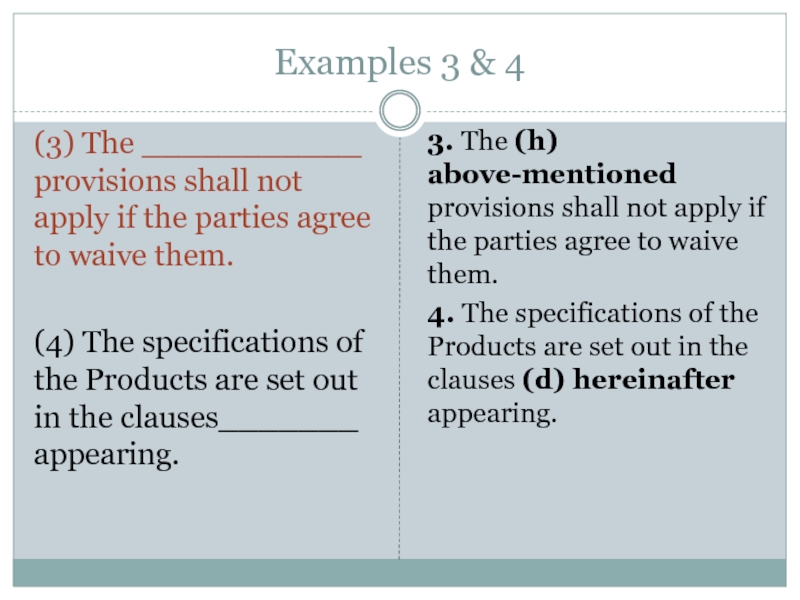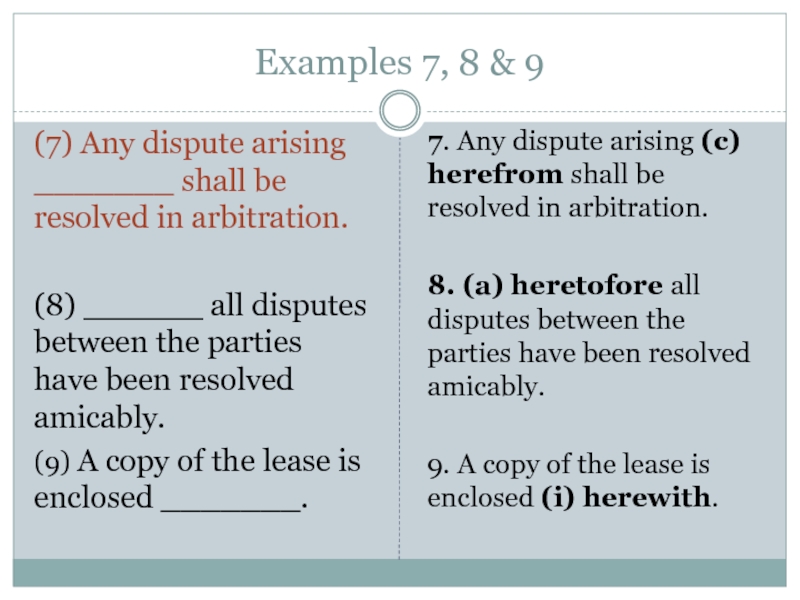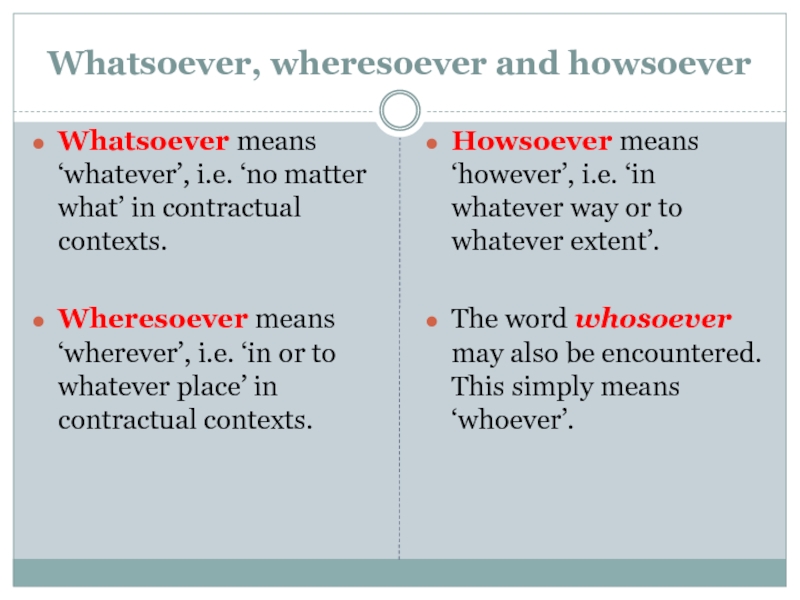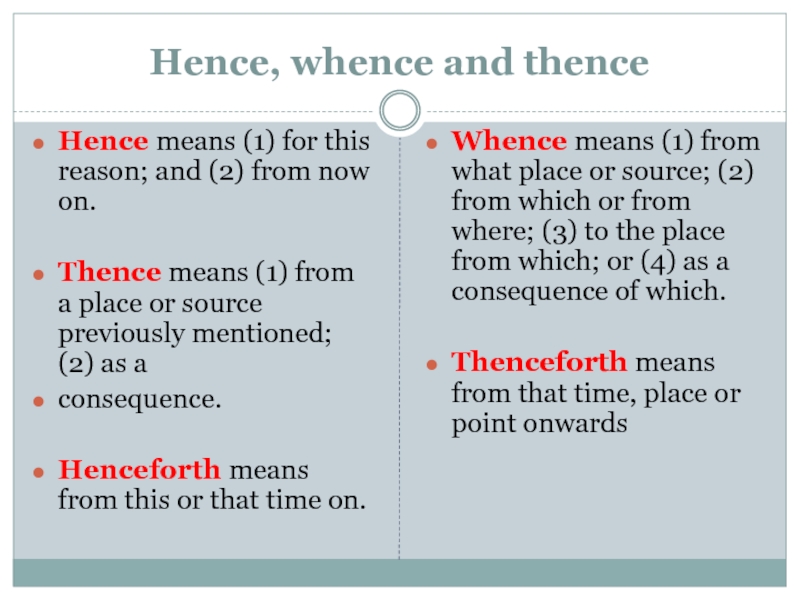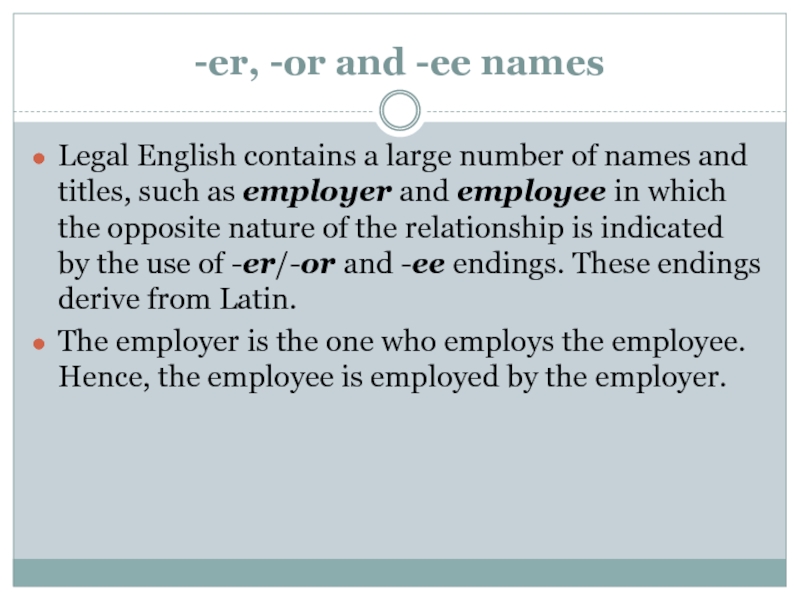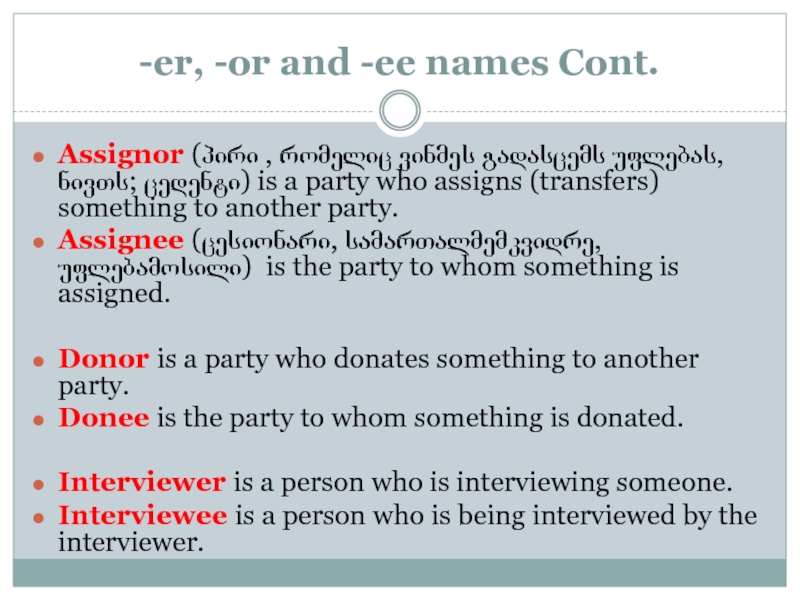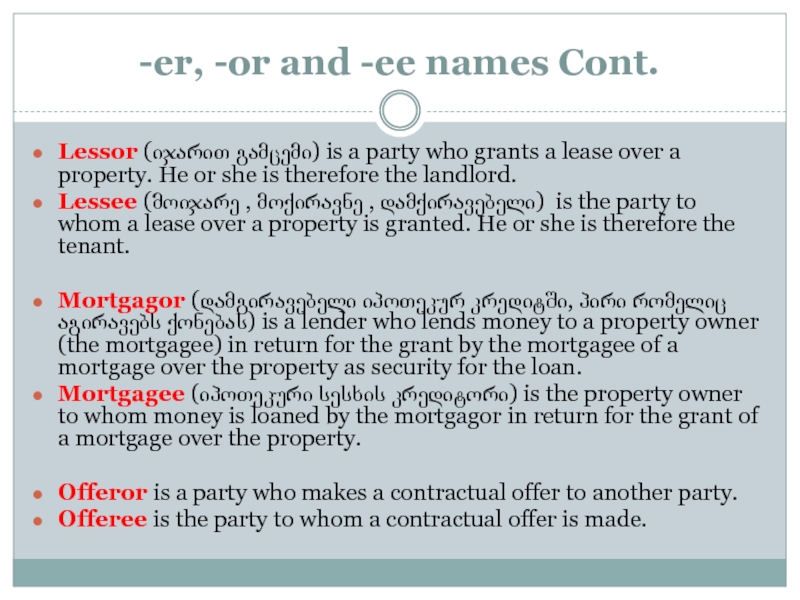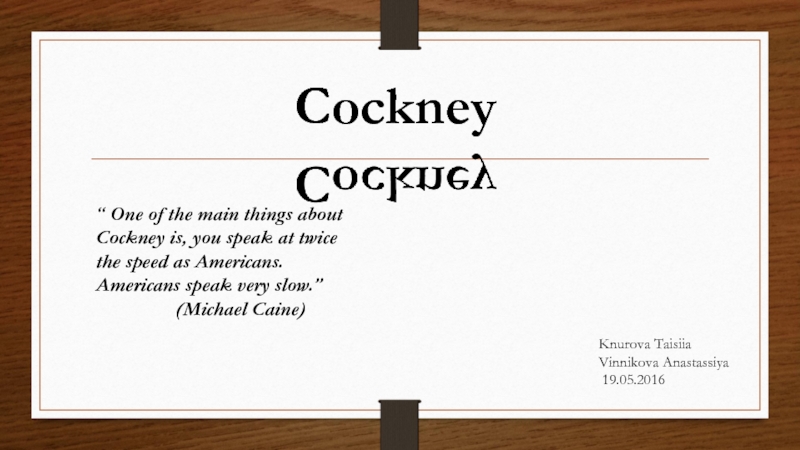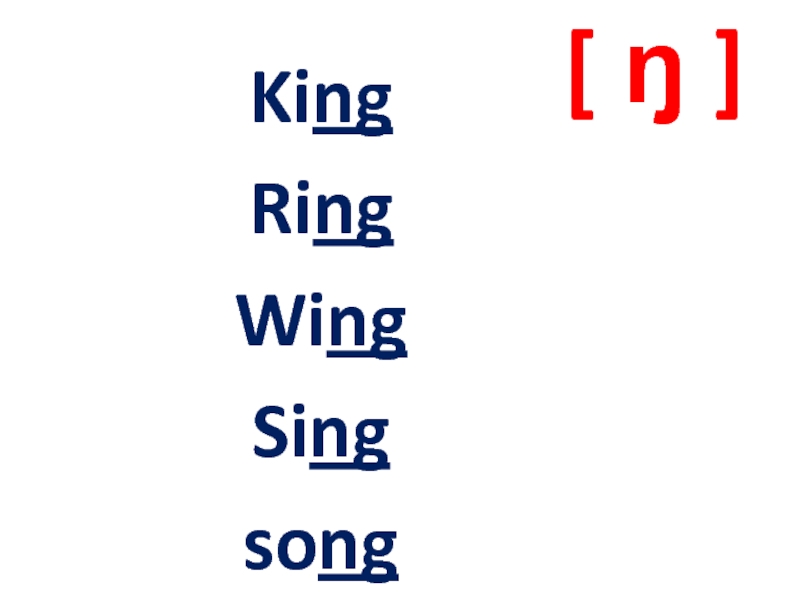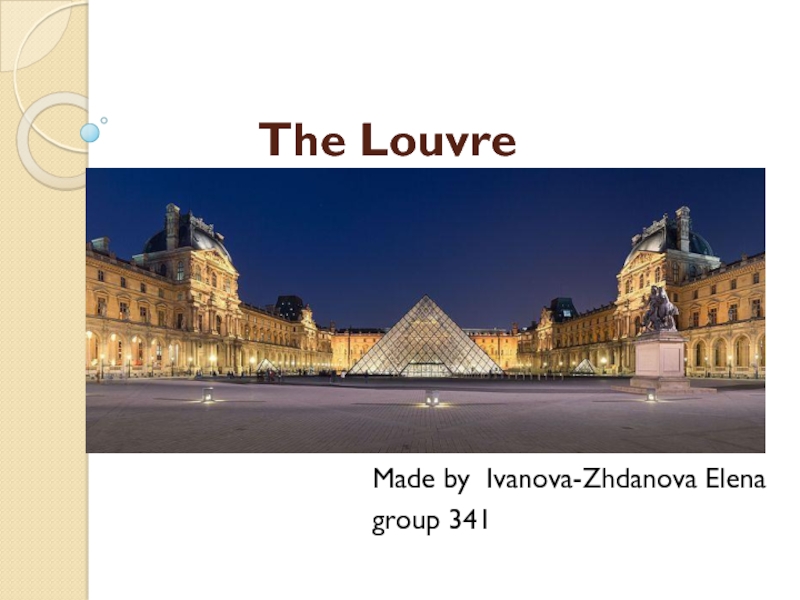- Главная
- Разное
- Дизайн
- Бизнес и предпринимательство
- Аналитика
- Образование
- Развлечения
- Красота и здоровье
- Финансы
- Государство
- Путешествия
- Спорт
- Недвижимость
- Армия
- Графика
- Культурология
- Еда и кулинария
- Лингвистика
- Английский язык
- Астрономия
- Алгебра
- Биология
- География
- Детские презентации
- Информатика
- История
- Литература
- Маркетинг
- Математика
- Медицина
- Менеджмент
- Музыка
- МХК
- Немецкий язык
- ОБЖ
- Обществознание
- Окружающий мир
- Педагогика
- Русский язык
- Технология
- Физика
- Философия
- Химия
- Шаблоны, картинки для презентаций
- Экология
- Экономика
- Юриспруденция
Legalese in Legal English Usage презентация
Содержание
- 1. Legalese in Legal English Usage
- 2. LEGALESE IN ENGLISH DOCUMENTS There is
- 3. DOUBLETS Able and willing (=able) Agree
- 4. TRIPLETS Cancel, annul, and set aside (=cancel)
- 5. Here-, there- and where- words Words like
- 6. cont. Sometimes the use of such words
- 7. Part I Hereafter = ‘from now on
- 8. Part II Hereinbefore = ‘previously in this
- 9. Part III Thereat = (1) at that
- 10. Part IV Thereupon = ‘immediately or shortly
- 11. EXERCISE
- 12. Examples 1 & 2 (1) The parties
- 13. Examples 3 & 4 (3) The
- 14. Examples 5 & 6 (5) That was
- 15. Examples 7, 8 & 9 (7) Any
- 16. Whatsoever, wheresoever and howsoever Whatsoever means ‘whatever’,
- 17. Hence, whence and thence Hence means (1)
- 18. -er, -or and -ee names Legal English
- 19. -er, -or and -ee names Cont.
- 20. -er, -or and -ee names Cont. Lessor
- 21. -er, -or and -ee names cont. Payer
Слайд 2LEGALESE IN ENGLISH DOCUMENTS
There is a tendency in legal English
Modern practice is to avoid such constructions where possible and use single word equivalents instead.
The change in legal usage is slow, and as a result it is still quite common to see certain typical doublets and triplets in certain legal documents.
Слайд 3DOUBLETS
Able and willing (=able)
Agree and covenant (=agree)
All and sundry
Authorize and direct (=authorize OR direct)
Cancelled and set aside (=cancelled)
Custom and usage (=custom)
Deem and consider (=deem)
Do and perform (=perform)
Due and owing (=owing)
Fit and proper (=fit)
Full and complete (=complete)
Goods and chattels (=goods)
Keep and maintain (=maintain)
Known and described as (=known as)
Legal and valid (=valid)
Null and void (=void)
Object and purpose (=object OR purpose)
Order and direct (=order)
Over and above (=exceeding)
Part and parcel (=part)
Perform and discharge (=perform OR discharge)
Repair and make good (=repair)
Sole and exclusive (=sole OR exclusive)
Terms and conditions (=terms)
Touch and concern (=concern)
Uphold and support (=uphold)
Слайд 4TRIPLETS
Cancel, annul, and set aside (=cancel)
Communicate, indicate or suggest (=communicate)
Dispute, controversy or claim (=dispute)
Give, devise and bequeath (=give)
Hold, possess, and enjoy (=hold)
Pay, satisfy, and discharge (=pay)
Possession, custody, and control (=possession OR custody OR control)
Promise, agree, and covenant (=promise OR agree)
Repair, uphold and maintain (=repair OR uphold OR maintain)
Way, shape or form (=way)
Слайд 5Here-, there- and where- words
Words like hereof, thereof, whereof (derivatives ending
For example:
the parties hereto instead of: the parties to this contract
or
the provisions contained hereinafter instead of: the provisions contained to later on in this contract
Слайд 6cont.
Sometimes the use of such words is unnecessary, e.g. if there
Here-, there and where- words are thought in modern legal usage largely as a consequence of legal tradition rather than usefulness.
Слайд 7Part I
Hereafter = ‘from now on or at some time in
Hereat = (1) ‘at this place or point’ or (2) ‘on account of or after this’. e.g., ‘hereat the stream divided’.
Hereby = ‘by this means; as a result of this’. e.g., ‘the parties hereby declare’.
Herefrom = ‘from this place or point’. e.g., ‘the goods shall be collected herefrom’.
Herein = ‘in this document or matter’. e.g., ‘the terms referred to herein’.
Hereinabove = ‘previously in this document or matter’. e.g., ‘the products hereinabove described’.
Hereinafter =‘later referred to in this matter or document’. e.g., ‘hereinafter referred to as the Company’).
Hereinbefore =‘previously in this document or matter’. e.g., ‘the products hereinbefore described’.
Слайд 8Part II
Hereinbefore = ‘previously in this document or matter’. e.g., ‘the
Hereof = ‘of this matter or document’. e.g., ‘the parties hereof’.
Hereto = ‘to this place or to this matter or document’. e.g., ‘the parties hereto’.
Heretofore = ‘before now’. e.g., ‘the parties have had no business dealings heretofore’.
Hereunder = ‘later referred to in this matter or document’. e.g., ‘the exemptions referred to hereunder’.
Herewith = ‘with this letter or document’. e.g., ‘I enclose herewith the plan’.
Thereof = ‘of the thing just mentioned’. e.g., The contract was signed on 1 May 1999. The parties thereof . . .’
Thereafter = ‘after that time’. e.g., ‘The products shall be transported to The Grange. Thereafter, they shall be stored in a warehouse.’
Слайд 9Part III
Thereat = (1) at that place or (2) on account
Thereby = ‘by that means; as a result of that’. e.g.,’the parties thereby agree’.
Therein = ‘in that place, document or respect’. e.g.,‘The parties shall refer to the contract dated 1 May 2019. It is agreed therein that . . .’
Thereinafter = ‘later referred to in that matter or document’. e.g., ‘thereinafter, it is agreed that . . .’
Thereof = ‘of the thing just mentioned’. e.g., ‘Reference is made in paragraph 5 to the contract dated 1 May 2019. The parties thereof agreed that . . .’
Thereon = ‘on or following from the thing just mentioned’. e.g., ‘The machine rests on a wooden block. There is placed thereon a metal bracket . . .’
Thereto = ‘to that place or to that matter or document’. e.g., ‘the parties thereto’.
Therefor = ‘for that’. e.g.,‘the equipment shall be delivered on 13 September 2019. The Company agrees to pay therefor the sum of $150,000’.
Therefor should not be confused with ‘therefore’ which means ‘for that reason’.
Слайд 10Part IV
Thereupon = ‘immediately or shortly after that’. e.g.,‘delivery shall take
Whereabouts = ‘the place where someone or something is’. e.g.,‘the Company shall be kept informed as to the whereabouts of the products’.
Whereat = ‘at which’. e.g.,‘The seller attempted to charge extra interest on late payment, whereat the buyer objected’.
Whereby = ‘by which’. e.g., ‘the contract dated 1 May 1999, whereby the Company agreed to purchase the products’.
Wherefore = ‘as a result of which’. e.g.,‘the buyer breached the contract, wherefore the seller suffered damage’.
Wherein = (1) in which, or (2) in which place or respect. e.g., ‘the contract dated 1 May 1999, wherein it is stated that . . .’
Whereof = ‘of what or of which’. e.g., ‘the Company one of the directors whereof is a foreign national’.
Whereupon = ‘immediately after which’. e.g., ‘The sum of $15,000 shall be paid by the buyer to the seller on 13 September 2003, whereupon the buyer’s liability to the seller shall be discharged’.
Слайд 11 EXERCISE Select the correct words from the list & insert them
a. heretofore
b. whereas
c. herefrom
d. hereinafter
e. hereof
f. wherein
g. herein
h. above-mentioned
i. herewith
j. hereto
Слайд 12Examples 1 & 2
(1) The parties ________ agree that this contract
(2) . . . and ________ the Purchaser is desirous of acquiring from the Vendor the Goods which form the subject-matter of this contract . . .
1. The parties (j) hereto agree that this contract shall continue for a period of two years from the date of execution (e) hereof.
2. . . . and (b) whereas the Purchaser is desirous of acquiring from the Vendor the Goods which form the subject-matter of this contract . . .
Слайд 13Examples 3 & 4
(3) The ___________ provisions shall not apply
(4) The specifications of the Products are set out in the clauses_______ appearing.
3. The (h) above-mentioned provisions shall not apply if the parties agree to waive them.
4. The specifications of the Products are set out in the clauses (d) hereinafter appearing.
Слайд 14Examples 5 & 6
(5) That was a case _________the judge ruled
(6) The provisions contained _________ shall be construed in accordance with the laws of England and Wales.
5. That was a case (f) wherein the judge ruled that liability could not be excluded in all circumstances, but that limitations might be permissible.
6. The provisions contained (g) herein shall be construed in accordance with the laws of England and Wales.
Слайд 15Examples 7, 8 & 9
(7) Any dispute arising _______ shall be
(8) ______ all disputes between the parties have been resolved amicably.
(9) A copy of the lease is enclosed _______.
7. Any dispute arising (c) herefrom shall be resolved in arbitration.
8. (a) heretofore all disputes between the parties have been resolved amicably.
9. A copy of the lease is enclosed (i) herewith.
Слайд 16Whatsoever, wheresoever and howsoever
Whatsoever means ‘whatever’, i.e. ‘no matter what’ in
Wheresoever means ‘wherever’, i.e. ‘in or to whatever place’ in contractual contexts.
Howsoever means ‘however’, i.e. ‘in whatever way or to whatever extent’.
The word whosoever may also be encountered. This simply means ‘whoever’.
Слайд 17Hence, whence and thence
Hence means (1) for this reason; and (2)
Thence means (1) from a place or source previously mentioned; (2) as a
consequence.
Henceforth means from this or that time on.
Whence means (1) from what place or source; (2) from which or from where; (3) to the place from which; or (4) as a consequence of which.
Thenceforth means from that time, place or point onwards
Слайд 18-er, -or and -ee names
Legal English contains a large number of
The employer is the one who employs the employee. Hence, the employee is employed by the employer.
Слайд 19-er, -or and -ee names Cont.
Assignor (პირი , რომელიც ვინმეს
Assignee (ცესიონარი, სამართალმემკვიდრე, უფლებამოსილი) is the party to whom something is assigned.
Donor is a party who donates something to another party.
Donee is the party to whom something is donated.
Interviewer is a person who is interviewing someone.
Interviewee is a person who is being interviewed by the interviewer.
Слайд 20-er, -or and -ee names Cont.
Lessor (იჯარით გამცემი) is a party
Lessee (მოიჯარე , მოქირავნე , დამქირავებელი) is the party to whom a lease over a property is granted. He or she is therefore the tenant.
Mortgagor (დამგირავებელი იპოთეკურ კრედიტში, პირი რომელიც აგირავებს ქონებას) is a lender who lends money to a property owner (the mortgagee) in return for the grant by the mortgagee of a mortgage over the property as security for the loan.
Mortgagee (იპოთეკური სესხის კრედიტორი) is the property owner to whom money is loaned by the mortgagor in return for the grant of a mortgage over the property.
Offeror is a party who makes a contractual offer to another party.
Offeree is the party to whom a contractual offer is made.
Слайд 21-er, -or and -ee names cont.
Payer is a party who makes
Payee is the party to whom payment is made.
Promisor is a party who makes a promise to another party.
Promisee is the party to whom a promise is made.
Representor is a party who makes a contractual representation to another party.
Representee is the party to whom a contractual representation is made.
Transferor is a party who transfers something to another party.
Transferee is the party to whom something is transferred.
